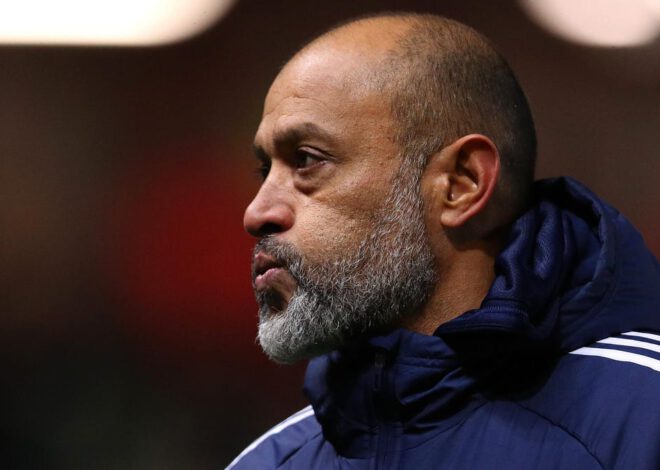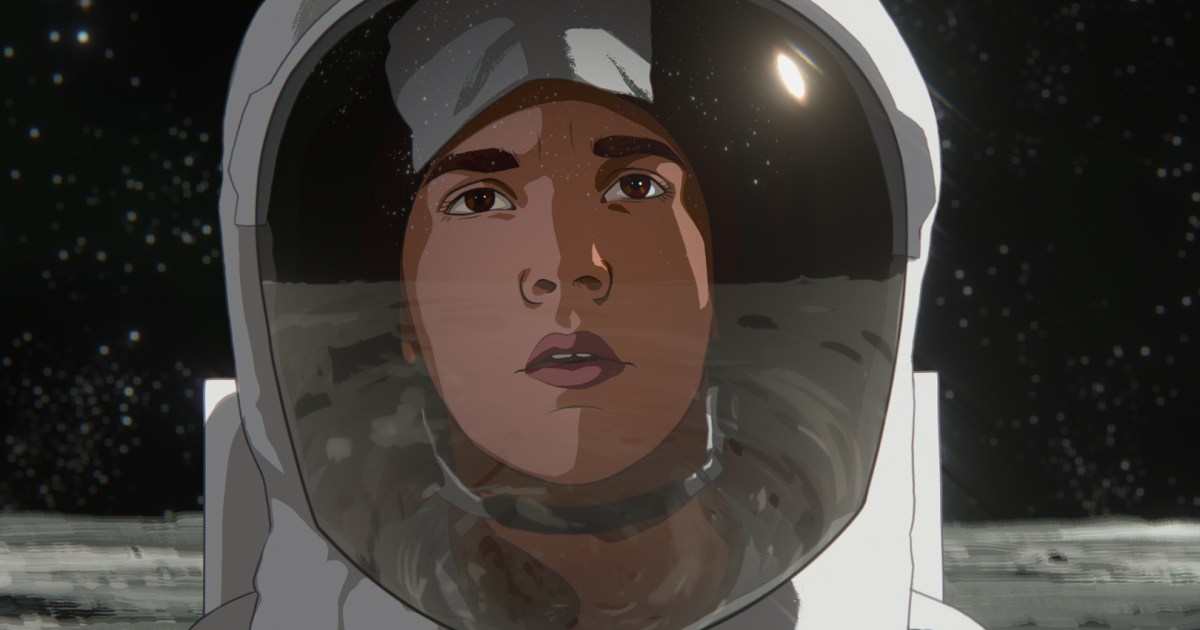
Apollo 10½ review: A wondrous blast into the past
Over the course of his career, Richard Linklater has established himself as the unofficial American master of the “hangout movie.” In films like Dazed and Confused and Everybody Wants Some!! Linklater has lovingly recreated eras that have been lost to time. In doing so, he’s made films about the finiteness of youth, and the ways in which the kids of the ‘70s and ‘80s both were and were not ready for what was coming for them.
In his Before trilogy, Linklater took the structure of a hangout movie and used it to make three separate films that are among the most romantic ever made. On their own, the three films, which were produced over the course of 18 years, work as vignettes of specific moments in time in much the same way Dazed and Confused and Everybody Wants Some!! do. Put together, they form a trilogy about how love can evolve and endure over time.
Now, Linklater has made his most outwardly sentimental time capsule to date in Apollo 10½: A Space Age Childhood. Written and directed by Linklater, the Netflix animated movie is inspired by its filmmaker’s childhood and is set during the late 1960s. It imagines an alternate reality in which a simple mishap resulted in NASA secretly recruiting a young boy to go to the moon before Neil Armstrong and Buzz Aldrin.
A trip down memory lane
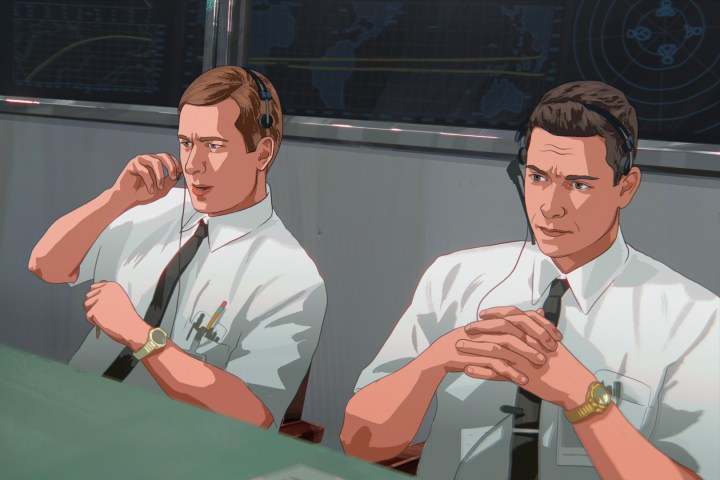 Netflix, 2022
Netflix, 2022
Unlike Dazed and Confused, Apollo 10 1/2 is less a portrait of a specific time and more like a recorded history of an era. Narrated by Jack Black, the film uses its alternate reality premise as a hook to draw the viewer in, only to spend most of its 98-minute runtime addressing the various highs, lows, and contradictions of American society in the 1960s. As a result, the film ends up feeling more like an impressionistic memory piece than a fun, lighthearted sci-fi adventure.
The film begins when its lead, Stanley (Milo Coy), is covertly recruited by a pair of NASA agents (played by Glen Powell and Zachary Levi). However, before it decides to dive headfirst into Stanley’s astronaut training, the film zags away into its first of many narrative detours about life in the 1960s. Black assumes the perspective of an older Stanley, one who is many years removed from the adventures of his younger self.
The distance Black’s narrator feels to the film’s central era adds an edge of melancholy to Apollo 10½, bringing emotion and heart to what could otherwise be seen as nothing more than a series of historical anecdotes. Stanley’s observations are always honest and sharp, but it’s the way that Linklater manages to root his protagonist’s many anecdotal detours in love and compassion that makes the film connect as well as it does.
An anti-nostalgia love letter
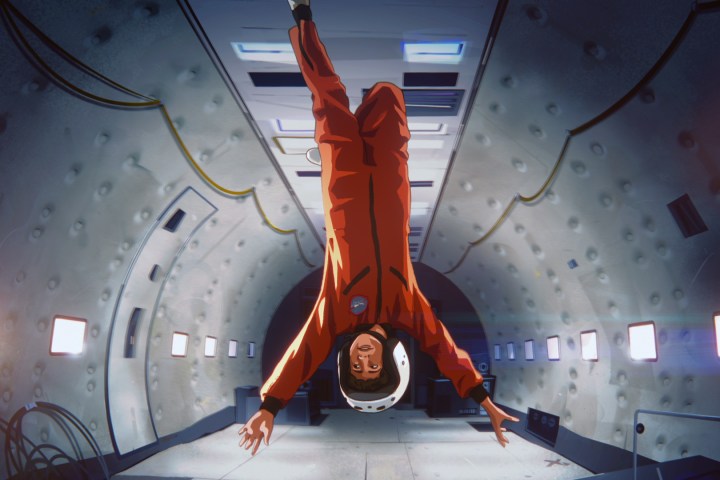 Netflix, 2022
Netflix, 2022
To Linklater’s credit, Apollo 10½ doesn’t ever come across as sickly sweet or saccharine. While there is an undeniable feeling of earnestness running throughout the entire film, Linklater never overly romanticizes the 1960s. Black’s older Stanley is quick to point out the various problems of the era, including the darkness of the Vietnam War and the controversies that surrounded NASA’s attempts to reach the moon. By doing so, Linklater manages to write a love letter to the 1960s that never feels blinded by nostalgia.
He does, however, make the era look incredibly good. Using a mixture of rotoscoping and traditional animation, Linklater turns Apollo 10½ into one of the prettiest, glossiest animated films released in recent memory. The entire film pops with vibrant primary colors, its warm visuals only further complementing Black’s affectionate narration. If Douglas Sirk had ever made an animated movie, it’d look like Apollo 10½: A Space Age Adventure, which is just another way of saying that the entire film looks like a 1960s postcard come to life.
All of this happened, more or less
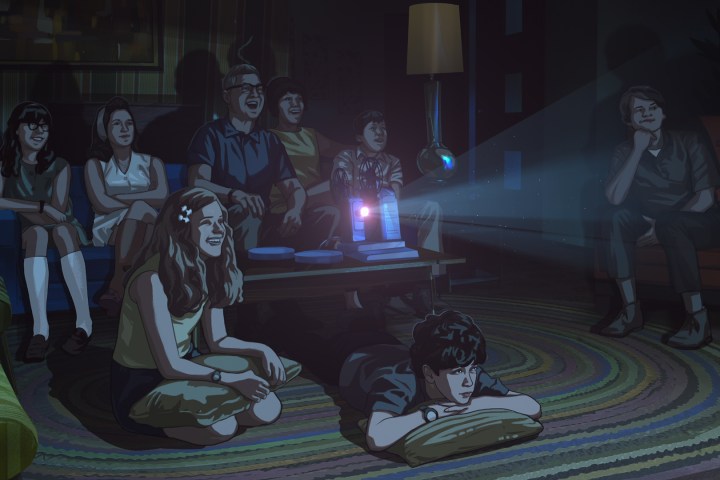 Netflix, 2022
Netflix, 2022
For some viewers, Apollo 10½‘s plotless structure may be too meandering to keep their attention, and there are a few moments in which it feels like Linklater is simply reminiscing for the sake of it. But those who do manage to meet the filmmaker halfway will find their patience rewarded in Apollo 10½‘s third act when Linklater begins to blend Stanley’s personal vision of the Space Race with the actual broadcast of Armstrong and Aldrin’s historic landing.
By cutting back and forth between Stanley’s personal mission to the moon and Armstrong and Aldrin’s, Linklater momentarily lets the subjective reality of a person’s memory exist alongside the objective truth of history. He makes something as massive as themoon landing feel personal and life-changing.
Apollo 10 1/2: A Space Age Childhood | Official Trailer | Netflix
Linklater doesn’t finish Apollo 10½ without pondering how much of the wonder he felt during America’s Space Age was real and how much of it he has brought to it over time. “You know how memory is,” Stanley’s mom says as she puts him to bed near the end of the film. But Linklater isn’t interested in tearing away the veil of joy through which he sees his childhood. That’s not what Apollo 10½ is. If anything, it’s a film about how wonder is one of the few emotions that can last forever — even if the moments when you experience it never do.
Apollo 10 1/2: A Space Age Childhood begins streaming Friday, April 1 on Netflix.

